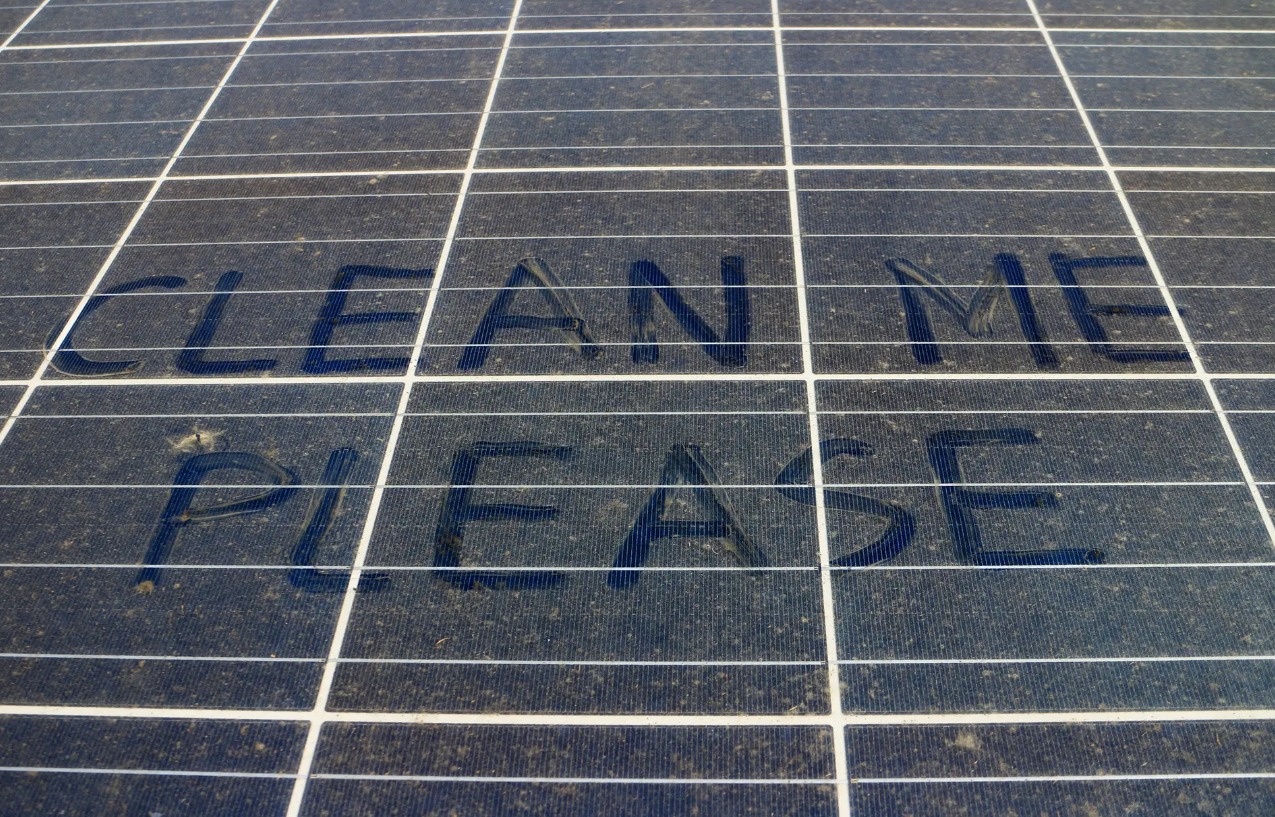World News31.01.2023
Ultra-thin coating makes for self-cleaning solar panels

QAZAQ GREEN. Solar panels can’t operate efficiently if they’re caked in dirt, but cleaning them regularly can become a time-consuming process. Engineers in Germany have now developed an ultra-thin coating that can make solar panels and other surfaces self-cleaning, New Atlas reports.
Solar is the biggest source of renewable energy, and it’s growing quickly. But as you could imagine, it’s not feasible to send someone out with a squeegee to clean millions of solar panels in each park. Having them clean themselves would be ideal – and now researchers at the Fraunhofer Institute in Germany have made strides towards that concept.
The team created a coating that changes its response to water based on the time of day, allowing it to shed any buildup of dust and dirt fairly quickly. The key ingredient is titanium oxide, which in its normal state repels water, forming drops that easily roll off. When the titanium oxide is exposed to UV light, however, it changes state to become highly water-attracting, which keeps the surface wet with a thin layer of water.
In effect, this makes for a self-cleaning coating. Dust or dirt that accumulates during the day can’t stick to the surface because the thin layer of water keeps it off, then at night the water beads up into droplets that easily roll off, taking the dirt with it. As a bonus, when the titanium oxide is activated with UV light it destroys organic molecules, effectively sterilizing the surface.
The general idea has been implemented in self-cleaning glass previously, but it usually involves either a water-repelling or water-attracting mechanism, not both. Better yet, the Fraunhofer team’s new coating is designed to be mass produced roll-to-roll, and could be applied to existing solar cells, windows and other surfaces.
In tests, the team used a pilot plant to produce rolls of thin glass 30 cm (11.8 in) wide, 20 m (65.6 ft) long and only 100 micrometers thick, with the titanium oxide coating up to 150 nanometers thick.
There are of course hurdles still to overcome. The team says the thin glass is still very fragile, and vulnerable to heat. Future work will focus on improving this, investigating the possibility of using polymer films instead.
The research will be presented at the BAU trade fair in Munich in April.
‘World’s first’ wooden wind turbine blades installed in Germany
Natron to kick off mass-production of long-life sodium-ion batteries
Tajikistan intends to fully switch to renewable energy sources by 2032 - deputy PM
Floating solar can power Africa’s energy goals, study finds
South Korean сompanies to modernize Kazakhstan's power plants, and GRES Topar
Decarbonization and sustainable development to take center stage at the 11th Annual Downstream Central Asia & Caspian Conference
Renewable electricity share in Turkey nears 50%
Sinn Power plans groundbreaking floating photovoltaic system in Bavaria
Swiss researchers boost efficiency of vertical axis wind turbines
Rapid expansion of batteries will be crucial to meet climate and energy security goals set at COP28
Georgia acquires first floating solar power plant
Wind turbine blades get a sustainable upgrade
China restricts offshore solar PV projects to specific sea areas
Biden announces $7 billion for solar energy in low-income communities
Production of a solar energy storage battery has started in Vilnius
Ainur Sospanova: Clear rules are needed for functioning of bilateral contracts market
Process to submit applications for RES auctions to construct HPPs and WPPs has commenced in Kazakhstan
JinkoSolar recognized as a Tier 1 Energy Storage Provider by BNEF
Japanese satellites will transmit solar power to Earth
Australia has planned a 1 GW hydroelectric power plant at former coal pit












